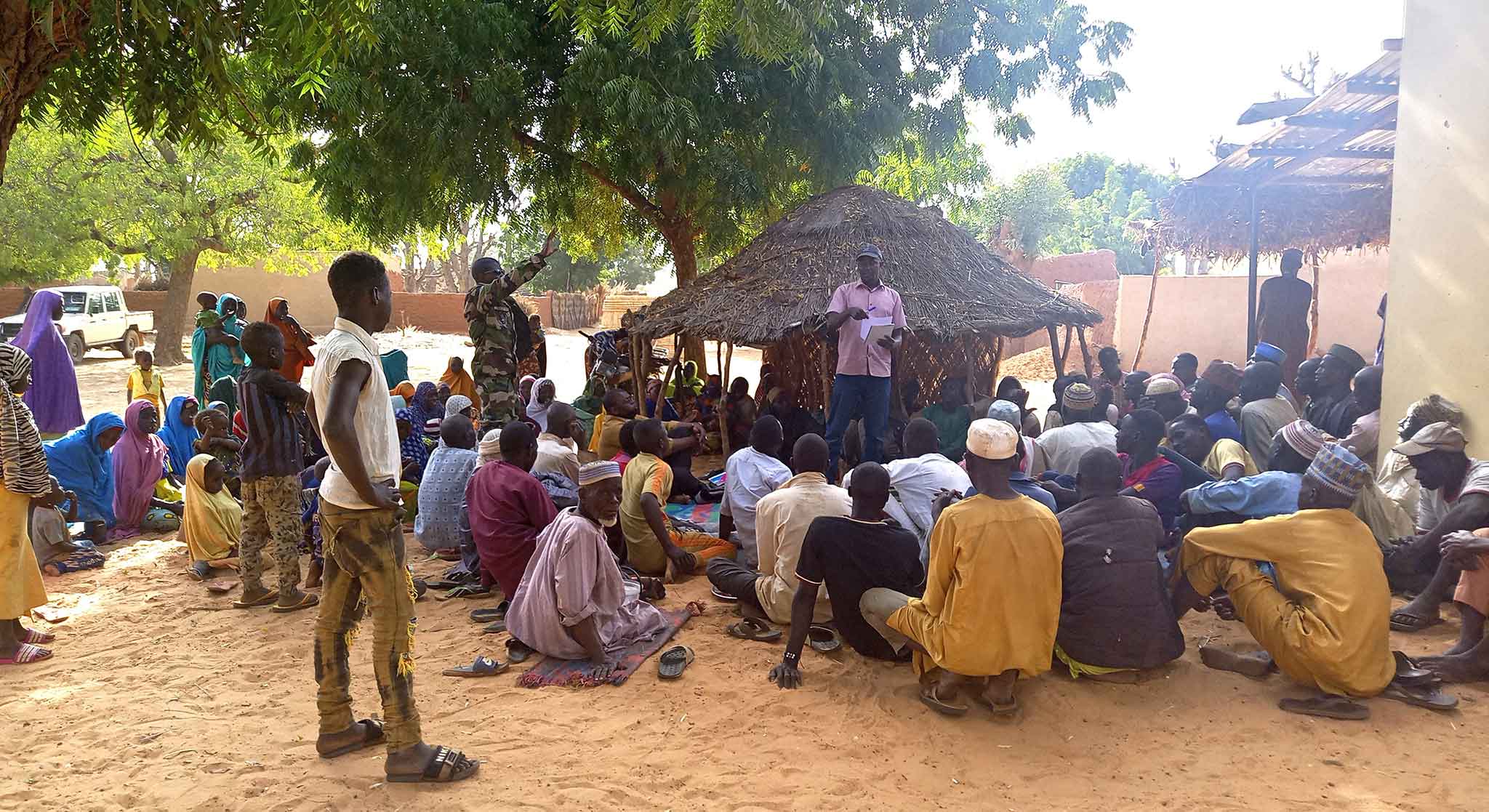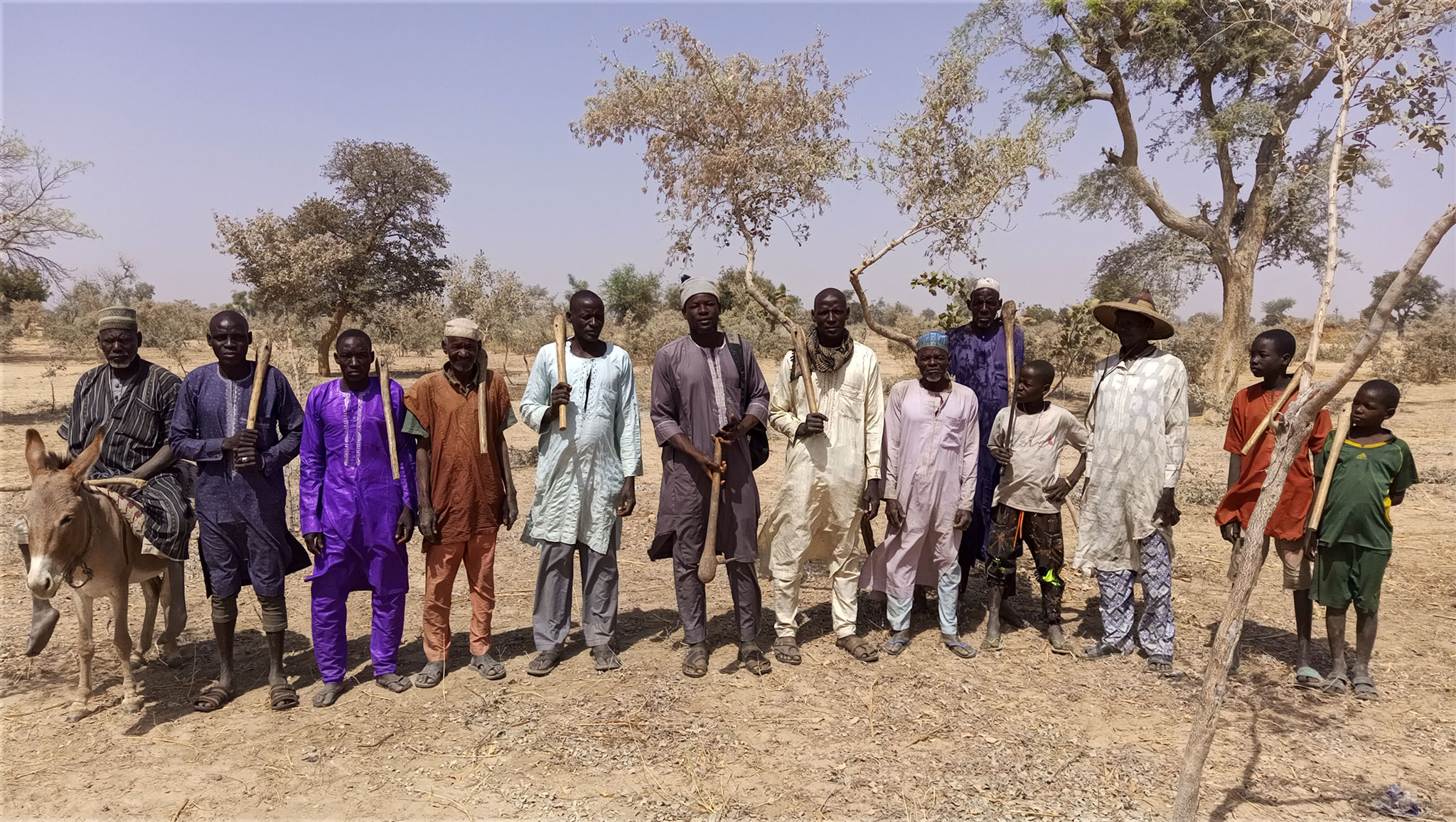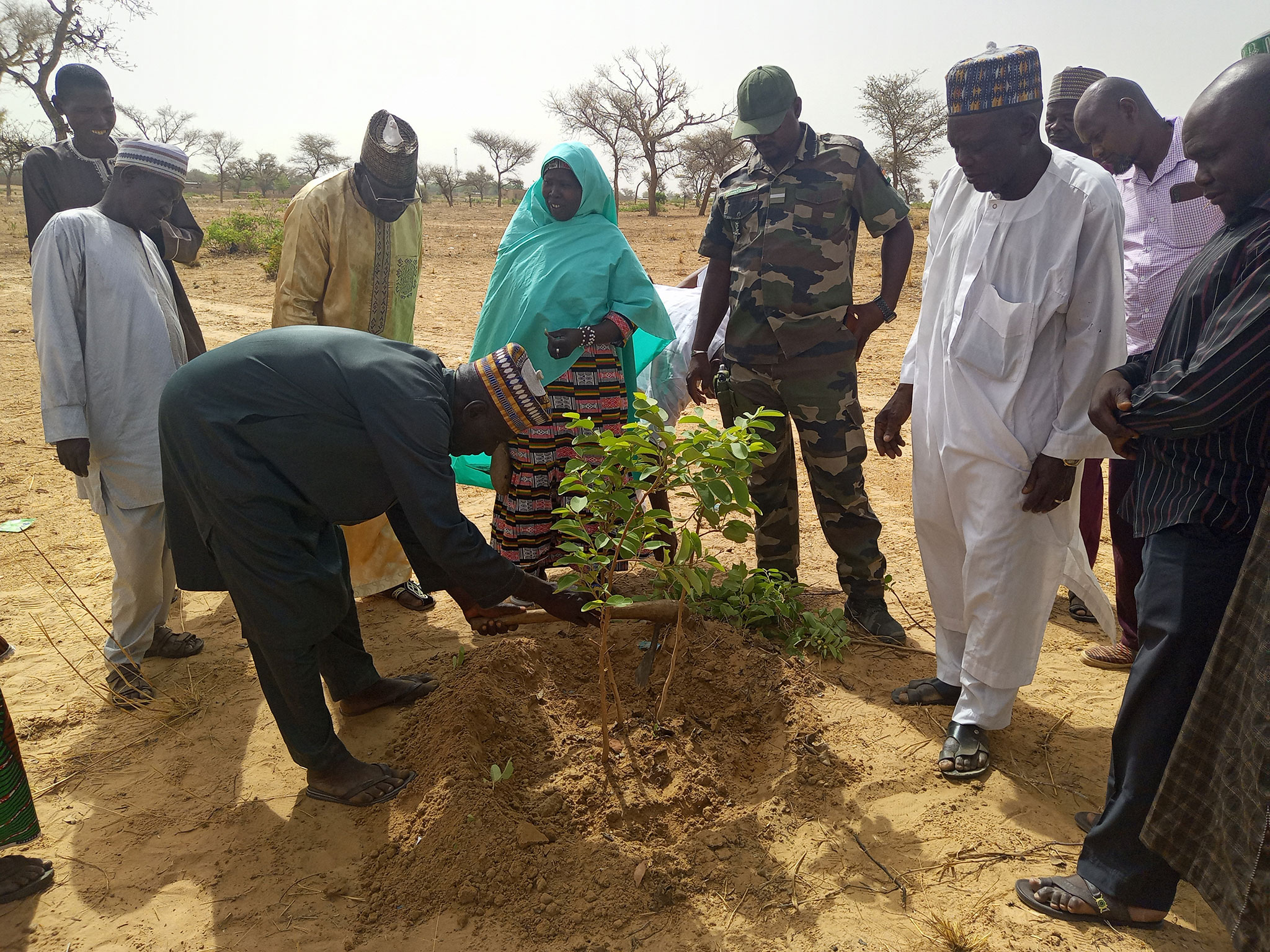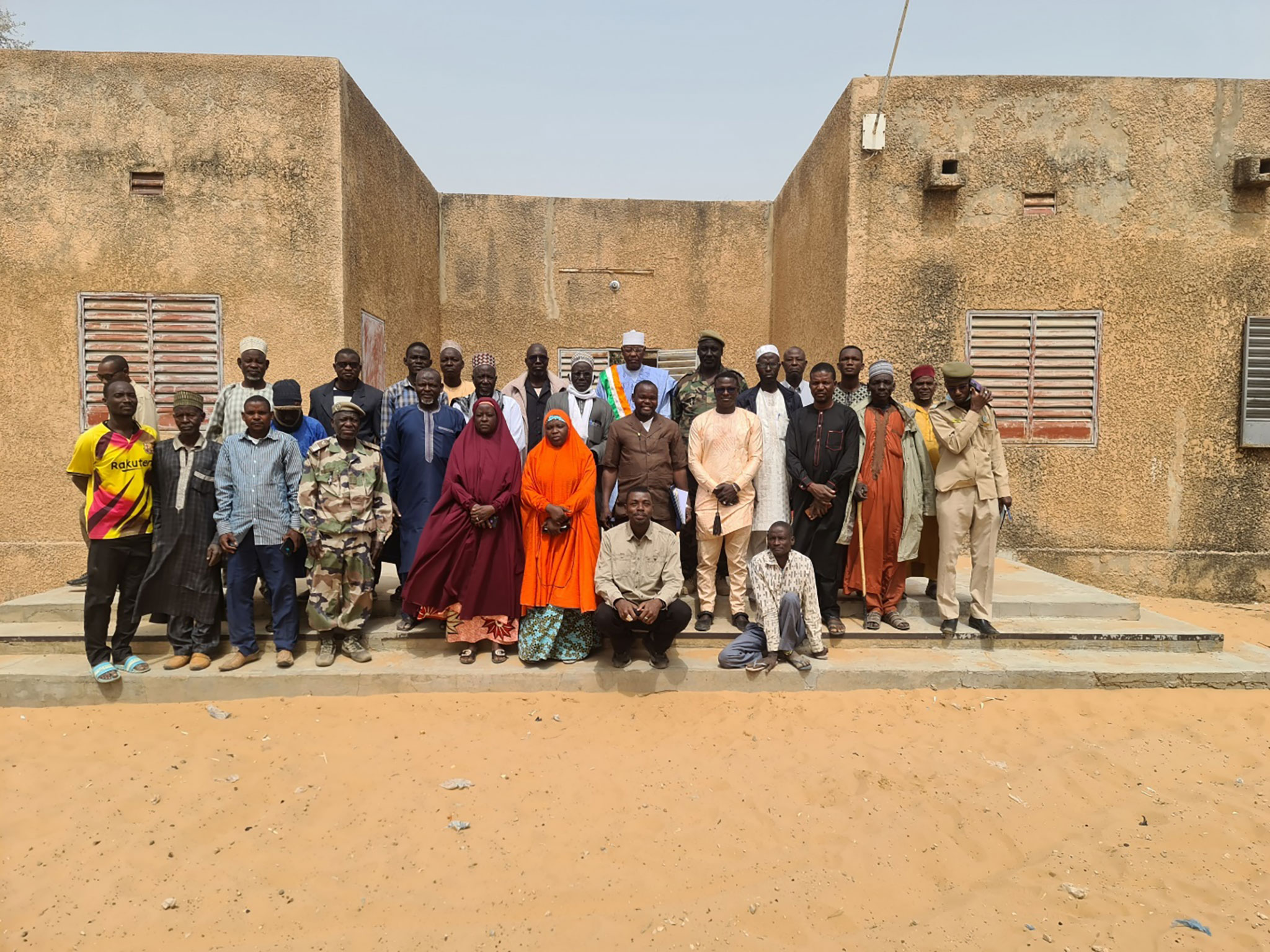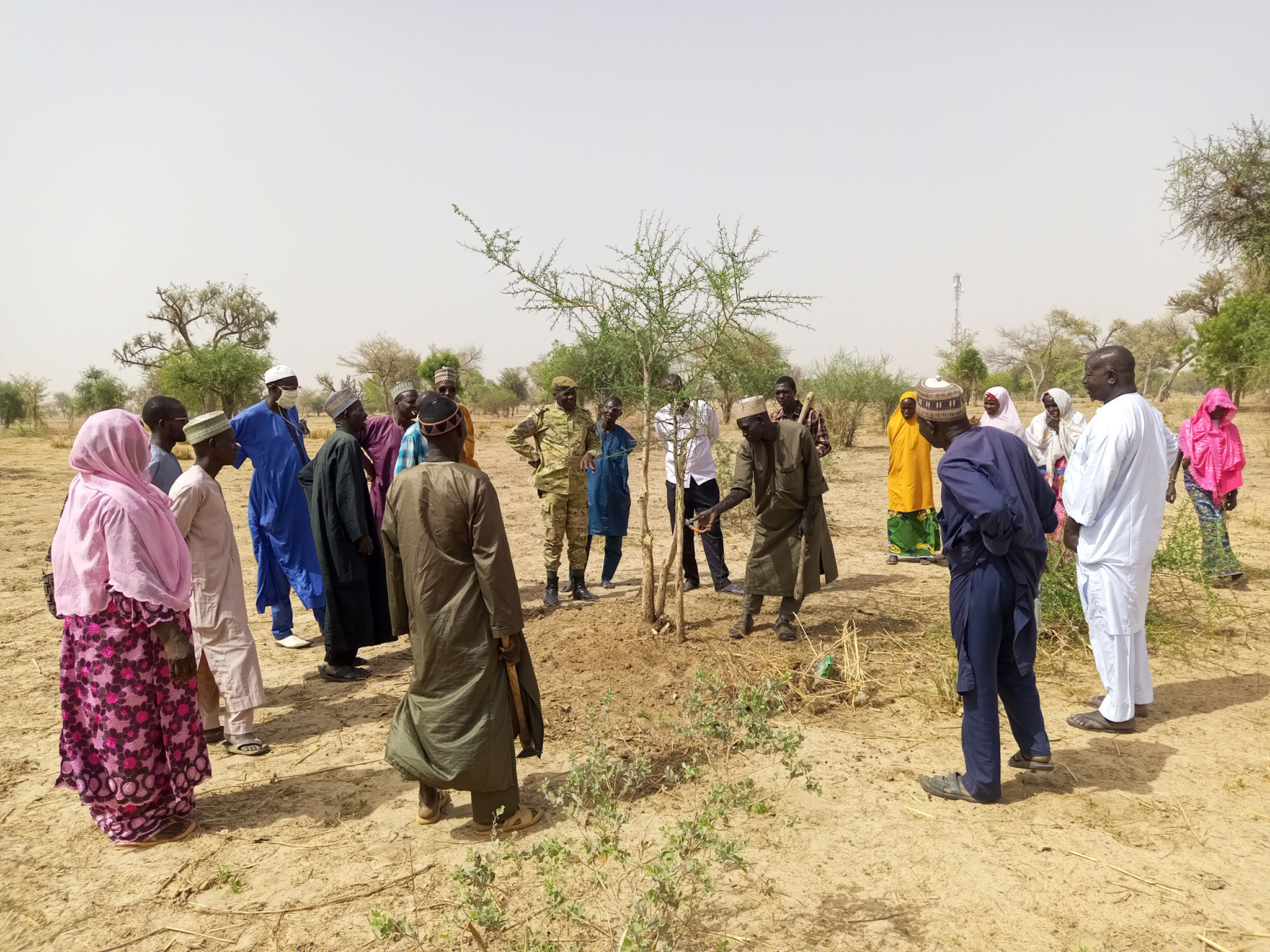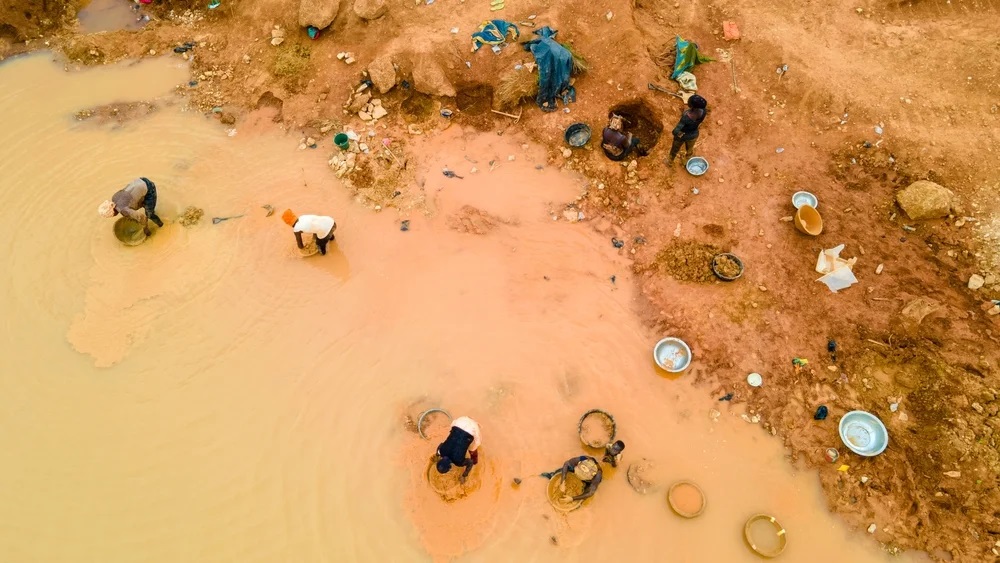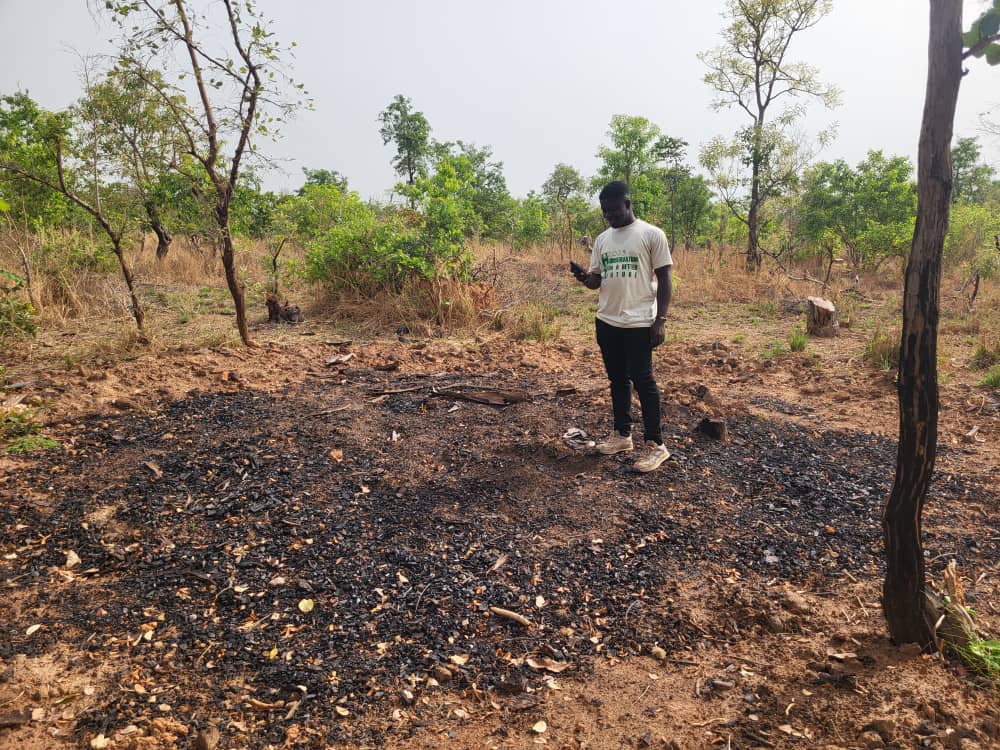A Community of Practice to Safeguard the Sustainability of Actions
Farmer Managed Natural Regeneration (FMNR) is playing a pivotal role in restoring degraded ecosystems across Niger, with notable successes in the Zinder region. The “GIRMA” project, funded by USAID, has been instrumental in scaling up FMNR, improving food and nutritional security, and enhancing community resilience. From 2021 to 2023, ICRISAT and Catholic Relief Services (CRS) expanded FMNR to 67 villages across 11 communes in Zinder, covering 4,470 hectares, treating 337,620 woody plant stumps, and increasing vegetation cover from 2.04% to 3.11%.
To ensure the initiative’s sustainability, a strategic partnership has been formed with the support of the SERVIR West Africa (SERVIR-WA) program, a project funded by USAID and implemented by NASA and ICRISAT. The collaboration has led to the establishment of a robust community of practice (CoP) composed of villagers, communal, and regional monitoring committees dedicated to overseeing, protecting, and promoting FMNR.
FMNR, a community of practice safeguarded at different level
- Training of Village Monitoring Committees: Village monitoring committees have been established in the Zinder region. These committees were created through general assemblies led by village chiefs involved a large participation of farmers, herders, women, and youth. The formalization of each committee was marked by a protocol signed by the village chief and the Head of Communal Environmental Services.
- Strengthening Community Oversight: Communal committees were established through decrees from the government to further enhance FMNR efforts. These committees are tasked with monitoring, selecting, and awarding prizes to villages and communities that excel in promoting FMNR across the 11 communes in the Zinder region of Niger.
- Regional Coordination: At the regional level, the FMNR committee includes key stakeholders such as the Regional Director of Environment and Fight Against Desertification, the Head of Sustainable Land Management, departmental environmental directors, and representatives from the Governor’s office, Regional Council, municipal associations, media, and technical and financial partners.
- Media and Traditional Leadership: Local media and traditional leaders contribute also significantly to promoting FMNR. They engage in awareness campaigns, share technical information through radio, and manage disputes peacefully, ensuring widespread community involvement and understanding.
- Capacity Building: Village and communal monitoring committees received training from GIRMA and SERVIR-WA on creating and managing community organizations. They were also sensitized on the Presidential Decree which regulates FMNR in Niger, including roles and responsibilities, monitoring and evaluation, and documentation.
- Advanced Tools: Training also included the use of the FMNR platform “SaZa,” developed by ICRISAT in collaboration with NASA. The FMNR service is one of the most original work on FMNR as it addresses gaps in the decision-making process throughout FMNR implementation in country. The platform helps identify suitable areas for scaling up FMNR by analyzing biophysical, socioeconomic, and governance factors, providing valuable data to continuously update and refine FMNR practices.
“The establishment of this communal committee helps our commune manage its natural resources efficiently. It will assist the municipal council in thoroughly mapping various interventions and centralizing data on FMNR practices, ” highlights Mr Mahamane Bachir Ousseini, Mayor of the rural commune of Yékoua and chairman of the communal FMNR committee.
“We firmly believe that this newly established communal FMNR committee will strengthen cohesion between the population and environmental agents and better disseminate and preserve FMNR given the diversity of stakeholders involved,” adds Mr Adamou Harouna, representative of the chief of the Magaria canton.
“Since we started practicing FMNR, wood cutting has been regulated in our village thanks to awareness and monitoring by adopters and the village committee. The practical training has clarified our roles and our relationship with the communal committee. The committee is crucial for the community as it transparently selects and rewards the best FMNR practitioners,” emphasizes Mr Issoufou Abdou Salamou, president of the village FMNR monitoring committee in Bagari village.
Extending FMNR networking
The FMNR monitoring network, extending from regional to village levels, presents a significant opportunity for all technical and financial partners (NGOs, associations, etc.) supporting FMNR in Niger, particularly in Zinder. It enables the identification of interventions and community support needs and ensures the success and sustainability of the initiative.
“ The FMNR monitoring network is now extending from the regional to the village level. It helps identify various interventions and community support needs and ensures the success and sustainability of the intervention. In addition, the commitment of the stakeholders guarantees the sustainability of the system, particularly the Saza FMNR platform, which, in the long term, will enable practitioners to access the carbon market It’s a great opportunity for all technical and financial partners ” concludes Dr Bouba Traore, Senior Scientist, ICRISAT.
This article is made possible by the generous support of the American people through the United States Agency for International Development (USAID) and the National Aeronautics and Space Administration (NASA). The contents are the sole responsibility of SERVIR WA and do not necessarily reflect the views of USAID, NASA or the United States Government.

